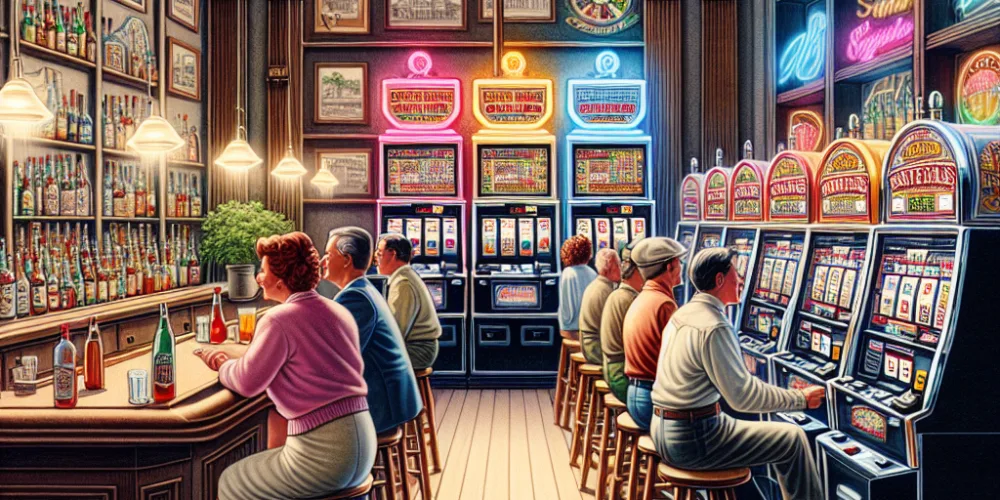In a striking move that is set to reshape the recreational landscape of Pennsylvania, lawmakers have recently passed a bill allowing the installation and operation of slot machines in local bars and taverns across the state. This development follows extensive lobbying efforts and promises to generate substantial revenue, boosting both local economies and state coffers.
Governor Tom Wolf signed the bill into law late last night, marking a pivotal change in Pennsylvania’s gaming laws, which until now restricted slot machines to licensed casinos and certain designated areas. The new legislation is expected to bring slot machine gaming closer to local communities, with proponents arguing it will enhance customer experience in these establishments and provide an economic uplift through increased patronage and gaming taxes.
Under the new law, establishments holding a valid liquor license will be eligible to host up to five slot machines. These businesses will need to apply for an additional gaming license, which will be governed by the Pennsylvania Gaming Control Board. The Board is also tasked with ensuring compliance with gaming safety and integrity standards.
According to the legislation, 40% of the revenues generated from these slot machines will be contributed to the state, designated specifically for funding educational and community projects. Another 10% is earmarked for local municipal authorities to aid in infrastructure and public service improvements. The remaining revenue will be retained by the establishments as a means to cover operational costs and investments.
This legislative shift comes at a strategic time when many local bars and taverns are seeking innovative ways to attract customers and recover from the economic downturn caused by recent global events. In a statement from the Governor’s office, Governor Wolf noted, “This law is a step forward in empowering local businesses, enhancing our state’s economic development, and supporting community welfare.”
However, not everyone is in favor of the new law. Critics argue that increasing access to slot machines can lead to higher rates of gambling addiction and related social issues. Organizations like the Pennsylvania Responsible Gambling Council have called for robust measures to be implemented to minimize gambling harm.
To address these concerns, the legislation includes provisions for part of the state’s revenue share to be allocated towards gambling addiction treatment programs and public awareness campaigns. Additionally, all staff operating the slot machines will be required to undergo specialized training aimed at recognizing and responding to gambling-related problems among patrons.
Local business owners are generally optimistic about the change. Mike Donovan, a bar owner in Philadelphia, expressed his support: “This could really change the game for us. It’s not just about extra revenue; it’s about giving patrons a new reason to come out and enjoy themselves, especially after the hard times we’ve faced recently.”
As the law takes effect immediately, the Pennsylvania Gaming Control Board is expected to begin processing licenses as early as next month. Meanwhile, the state government is preparing to launch a series of workshops and seminars to assist eligible establishments in understanding the new regulations and preparing their applications.
This legislative development in Pennsylvania could potentially set a precedent for other states considering similar expansions in local gaming options. As states seek new income sources and ways to bolster local businesses, the integration of gaming within community locales might just become a more common sight across the United States.
As this new era of local gaming unfolds, all eyes will be on Pennsylvania to see how effectively the blend of economic gains and responsible gaming can be managed. This initiative not only represents a significant change in the state’s gaming landscape but also highlights the ongoing evolution of community-based entertainment and economic strategies in the wake of shifting societal trends.

Karine Gomez is an enthusiastic writer and avid gamer with a particular love for PlayStation and casino gaming. Her deep knowledge of gaming trends and casino dynamics makes her articles both informative and engaging. Karine’s passion for PlayStation games and her firsthand experience with casino play shine through in her writing, offering readers authentic insights and valuable tips.

